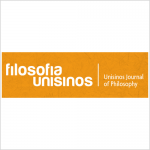Representationalism, disjunctivism and the problem of hallucination
Vol 15, No 1 (2014) • Filosofia Unisinos - Unisinos Journal of Philosophy
Autor: Francisco Pereira
Resumo:
Representationalists claim that there is a common metaphysical factor of a representational type that characterizes both perceptions and hallucinations and that we cannot discriminate introspectively from them. Disjunctivists reject this idea and claim that perceptions are essentially relations to objects in the physical world, while hallucinations only seem to be. The Disjunctivist needs then to face the challenge of giving a proper characterization of the nature and phenomenology of hallucinations, without appealing to the existence of primitive mental properties that could explanatorily screen off the relational structure of perceptions. Only in this way it is possible to avoid the commitment to a metaphysical common factor. I will argue that the so-called negative epistemic strategy is suitable to meet this demand only if we supplement it with an empirically supported account — probably of a metacognitive kind — regarding the possibility of indiscriminability between hallucinations and perceptions and of the fact that we subjectively experience hallucinations as if they were relations to objects in the physical world.
ISSN: ISSN: 1984-8234
Texto Completo: http://revistas.unisinos.br/index.php/filosofia/article/view/fsu.2014.151.03
Palavras-Chave: Disjunctivism,indiscriminability,hallucinatio

Filosofia Unisinos - Unisinos Journal of Philosophy
The journal Filosofia Unisinos - Unisinos Journal of Philosophy is published once every four months by Universidade do Vale do Rio dos Sinos.
Articles must be original, unpublished, and not under consideration for publication anywhere else and can be written in Portuguese, English or Spanish
Filosofia Unisinos - Unisinos Journal of Philosophy prints articles, translations and critical book reviews. It also reprints papers that are considered fundamental to the area when authorized written permission is given by the original publisher.
